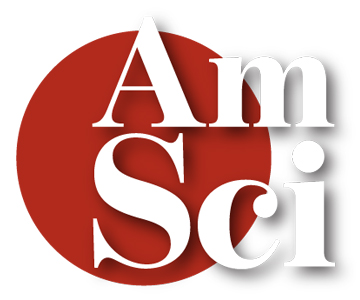Magazine
March-April 2021

March-April 2021
Volume: 109 Number: 2
A respiratory droplet harbors SARS-CoV-2, the virus that causes COVID-19, in this painting by biologist and artist David S. Goodsell. Respiratory droplets are expelled when we breathe, which is why face masks that catch those droplets can slow the spread of the pandemic. The surface of SARS-CoV-2 is covered with spike proteins, giving it a distinctive, crownlike silhouette (magenta). The droplet consists primarily of water, but it also includes molecules that are normally found in the respiratory tract, including mucus molecules (green), pulmonary surfactant molecules from the surfaces of respiratory cells (blue), and protective molecules from the immune system (tan). Goodsell describes his process of researching and creating molecular art in “Painting a Portrait of SARS-CoV-2”
In This Issue
- Art
- Astronomy
- Biology
- Communications
- Engineering
- Environment
- Evolution
- Mathematics
- Medicine
- Physics
- Policy
- Psychology
- Technology
From a Swinging Chandelier to Global Positioning Systems
Steven Strogatz
Mathematics
Calculus has unraveled mysteries that puzzled scientists for centuries, and it has led to technologies they never would have imagined.
Blind Mind's Eye
Adam Zeman
Art Communications
People with aphantasia cannot visualize imagery, a trait that highlights the complexities of imagination and mental representation.










